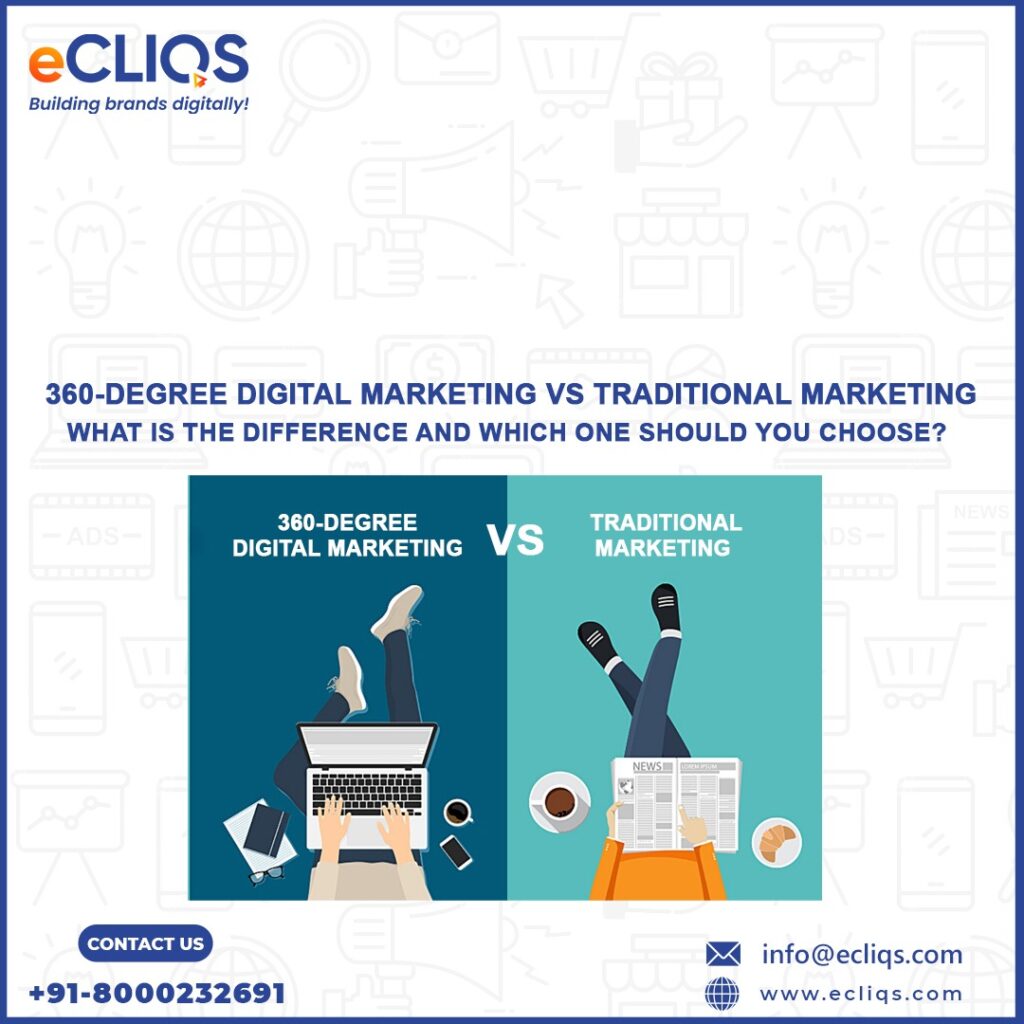
Traditional Marketing and Digital Marketing are two very different approaches to marketing that aim at achieving the same goals i.e., promoting products and services, and reaching the target audience. Traditional Marketing is a marketing approach that uses conventional, traditional methods to promote goods and services. However, Digital Marketing uses online platforms and the latest digital technologies to promote products and services.

What is Traditional Marketing?
Traditional Marketing, as the name suggests is a form of marketing that uses conventional/traditional methods/offline media to reach your potential audience. Traditional Marketing uses offline channels such as television, direct mail, radio, telemarketing, flyers, and billboards. This is a one-way communication marketing approach and allows businesses to broadcast their message to a large audience with no or less interaction from the target audience. These marketing materials are usually placed/displayed in locations where their target audience is more likely to see, hear, or engage with them.
Some common traditional marketing methods include –
- Tv commercials
- Radio Commercials
- Magazines
- Newspapers
- Billboards
- Flyers and posters
- Tele-marketing
- Direct mailers, coupons
What is Digital Marketing?
Digital Marketing is a modern form of marketing that uses online platforms and the latest digital technologies to reach the target audience. With digital Marketing, the organisation leverages social media, the power of the internet, search engines, mobile apps, email, and other digital channels. This is a two-way communication marketing approach and allows the organisation and its target audience to interact with each other, engage, and provide feedback and/or suggestions. Digital Marketing offers businesses numerous tools and techniques to target specific audiences, measure campaign performance, and optimise their strategies.
Digital marketing is the promotion of products/services over the Internet through numerous digital mediums. Some popular digital marketing methods include –
- Email Marketing
- Social Media Campaigns
- Search Engines Ads
- SEO
- Affiliate Marketing
- Influencer Marketing
- Websites
Key Differences Between Digital Marketing vs Traditional Marketing
1. Target Audience
Younger people are primarily engaged with social media and digital apps, making them easier to reach through digital marketing. In contrast, traditional marketing methods like newspapers, radio, and television are more effective for older audiences. If your target audience is young, digital marketing is essential since Gen Z spends most of their time online. However, if your audience is older and not as active on digital platforms, traditional marketing might be a better focus.
2. Consumer interaction
Traditional marketing may have a more personal approach since the interaction with the consumer is more direct via telecalling or cold calling but at the same time through TV/radio/newspaper there is no interaction at all. When it comes to digital marketing, the physical presence of the marketer is not required, all your work is done online. The interaction is mainly online in the form of comments, replies, queries etc.
3. Costs
Traditional marketing is more expensive since there is printing involved, radio and television ads, etc., and it is harder to scale and also get the desired slot on radio or television. Online marketing is more affordable as one can set up the costs of the campaign as per their budget.
4. Speed of Results
It can take weeks or even months to track results when it comes to traditional marketing since you have to rely on someone else to get those results. With digital marketing, it is much easier to track results with real-time results with the use of reports and web analytics businesses can have at their fingertips. There are more metrics available as well such as views, click-through rate, ROAS, etc.
5. Strategy
As traditional marketing efforts do not have real-time results, it takes longer to create strategies with limited data available. Strategy improvisation is much easier for digital marketing campaigns as the results are easily available and changes can be done easily.
6. Sustainability
Traditional marketing heavily depends on hard copies (magazines, newspapers, flyers etc.) describing the product or service, displayed in public areas like billboards, and hoardings. On the other hand, digital platforms provide product/ service information in softcopy format on their website, social media platforms, ad campaigns etc. This is accessible to the user at any point in time and also is good for the environment.
7. Feedback
It is easier to track and analyze the feedback of a particular campaign through digital marketing as there is an open line of communication involved in the process. In traditional marketing, marketers simply pray they don’t get negative feedback. This is why most of their time and energy is spent on focus groups and market research. It is easier to fix a glitch in digital marketing as compared to traditional marketing.
What should you choose?
So, what’s our verdict – digital marketing or traditional marketing? It all boils down to who your target audience is. Your audience could also enjoy a mix of both strategies which have their own set of pros and cons. Once you have identified what kind of data both traditional and digital campaigns consume the most, then you can start building your winning strategy.
Digital Marketing is the need of the hour, especially with the ongoing growing digital world.
If your product or service caters to a younger audience, then you definitely should go all out and focus on digital marketing. It is great for small businesses as well to kick-start their presence and build brand value initially as it is inexpensive and has a high reach and engagement.
ROI or the returns on investment is every marketer’s concern. When it comes to digital marketing vs traditional marketing return on investment, digital marketing offers better ROI if your audience is bigger as it helps reach a wider audience with less investment whereas, with traditional marketing, the cost of reaching a wider audience is way too high. But if you are a brand with deep pockets, traditional marketing is a good choice as it might get you more eyeballs and impact making you a household name. The best strategy for most of businesses would be to have a mix of digital marketing and traditional marketing depending on their target audience and budget they have.


